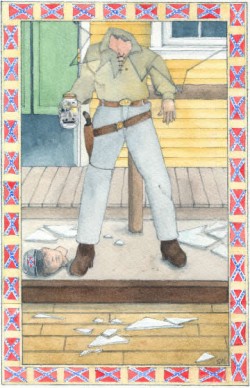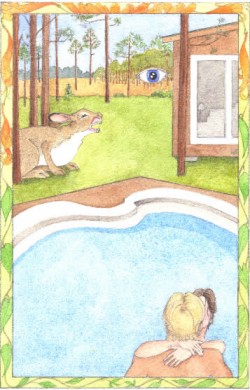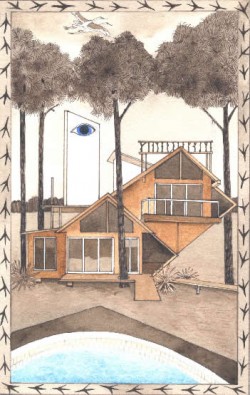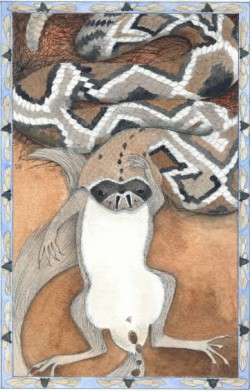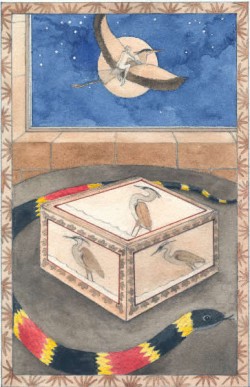Questions and Topics For Discussion
1) Do you think Charles Porter is suggesting there is another world inside the human head like heaven, Hades, a parallel universe, or Plato’s shadow land by introducing us to the bicameral mind of the schizophrenic? Do you think Porter is saying the brain itself is the land of spirits, and that voices like Triple Suiter’s are souls who live in that world in the form of what he calls slippers? Is this world, in fact, a yet unknown segment of existence?
2) On the book’s cover, we see a pair of slim hands holding a pin to prick the bubble causing the egg to fall from the horse—does Aubrey Shallcross look at life as being that fragile? That scary? Do you? Do you think there is a connection between the pin on the cover to the hat pin in the story carried by Sugarcane Valdez, Marla, and Christaine for defensive reasons?
3) Do the slim hand’s actions in the story represent religion being crammed down our throats like the large objects Aubrey thinks are in his throat when he blacks out and goes to the Blind Spot Cathedral? Does Porter’s use of the word palindrome, “you can cage a swallow, can’t you, but you can’t swallow a cage, can you,” say it all when it comes to certain types of indoctrination?
4) Is this book, its dialogue, more like a kaleidoscopic film instead of a book? Or both?
5) Have you ever seen the movie, Two-Lane Black Top, with James Taylor mentioned at the end of chapter one? Aubrey is falling asleep, and the voices ask him to, “Pick a film, Aubrey, any film.” Do you think the reference to this movie is an appropriate simile for someone who is searching, racing toward something or nothing as James Taylor was in that film?
6) Have you ever seen the movie mentioned in chapter 11 on the cattle drive, Lonely Are the Brave with Kirk Douglas? There is a man driving a truck in the film that shows up intermittently. At the end, the truck hits Kirk Douglas on his horse. Do you think the same intermittent appearance of Christaine’s ex-husband, Carlos, during this story is like that truck—always coming—some bad thing we see every night on the news? Or do you think that would just be a paranoid preoccupation?
7) Do you think, in the age of Google and Netflix, that referencing things like these two films is too much for some readers?
8) After reading Shallcross, if you were standing in an old Catholic cathedral and looked up at the high domed ceiling from the basilica area, would you see a blind spot? God? Just the ceiling?
9) Aubrey was in a coma after being shot; do you think Aubrey and Triple Suiter’s experience on the shell rock road among the stations of the cross was something that gave him solace about the meaning of the bumper sticker: Jesus paid for our sins, now let’s get our money’s worth? Do you think what Jesus and St. Peter said to Aubrey concerning the bumper sticker, religion, and dying for what you believe in was true?
10) Who do you think was the real narrator of Shallcross: Charles Porter or Triple Suiter?
11) Do you buy the suggestion in the end that Triple Suiter wrote this book? The last three paragraphs of the book suddenly go from the third person to the first person narrative, and Trip says, “I sat in Aubrey’s brain around a campfire with six of my friends— slippers from the minds of . . . .” These slippers told Triple Suiter everything about their hosts—the other characters in the book. Does that tell us how Trip could know them well enough to take their points of view? Write their thoughts?
12) What does the reader learn over the course of this novel about a person who hears voices, yet can function well in society? Would you be interested in finding out more about the organization called the Hearing Voices Network to which this book is dedicated?


